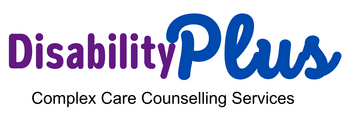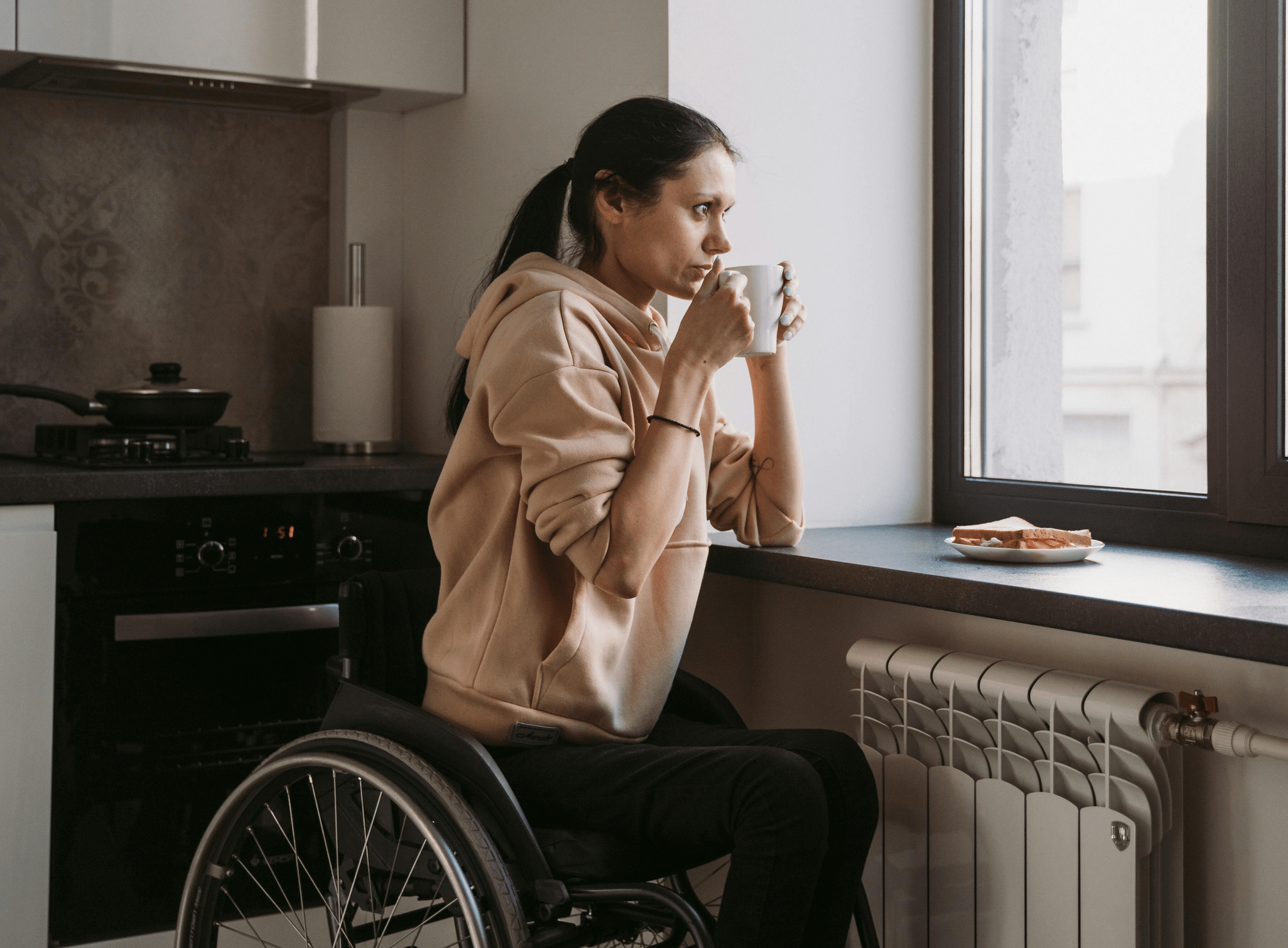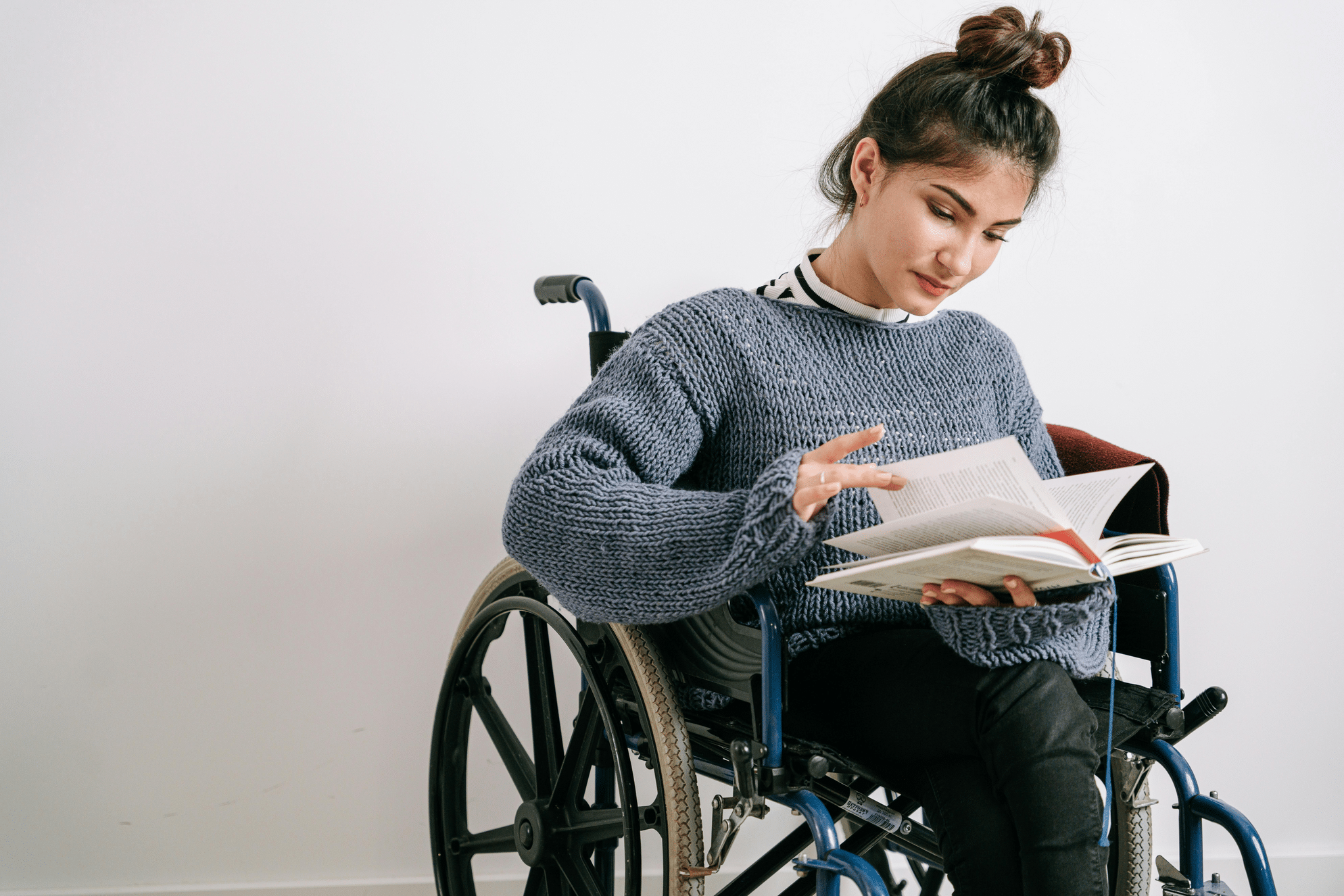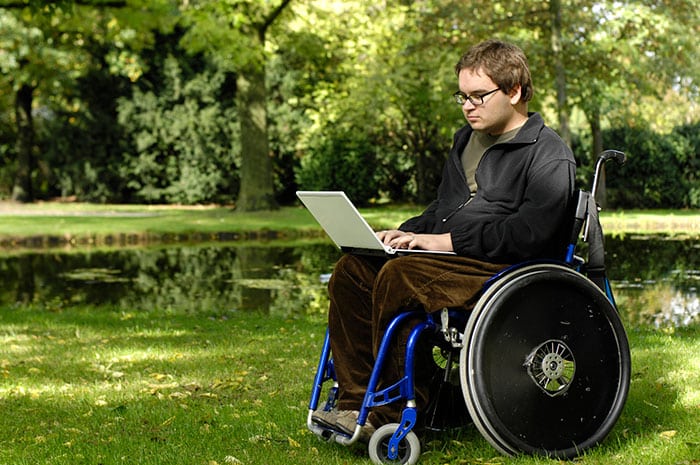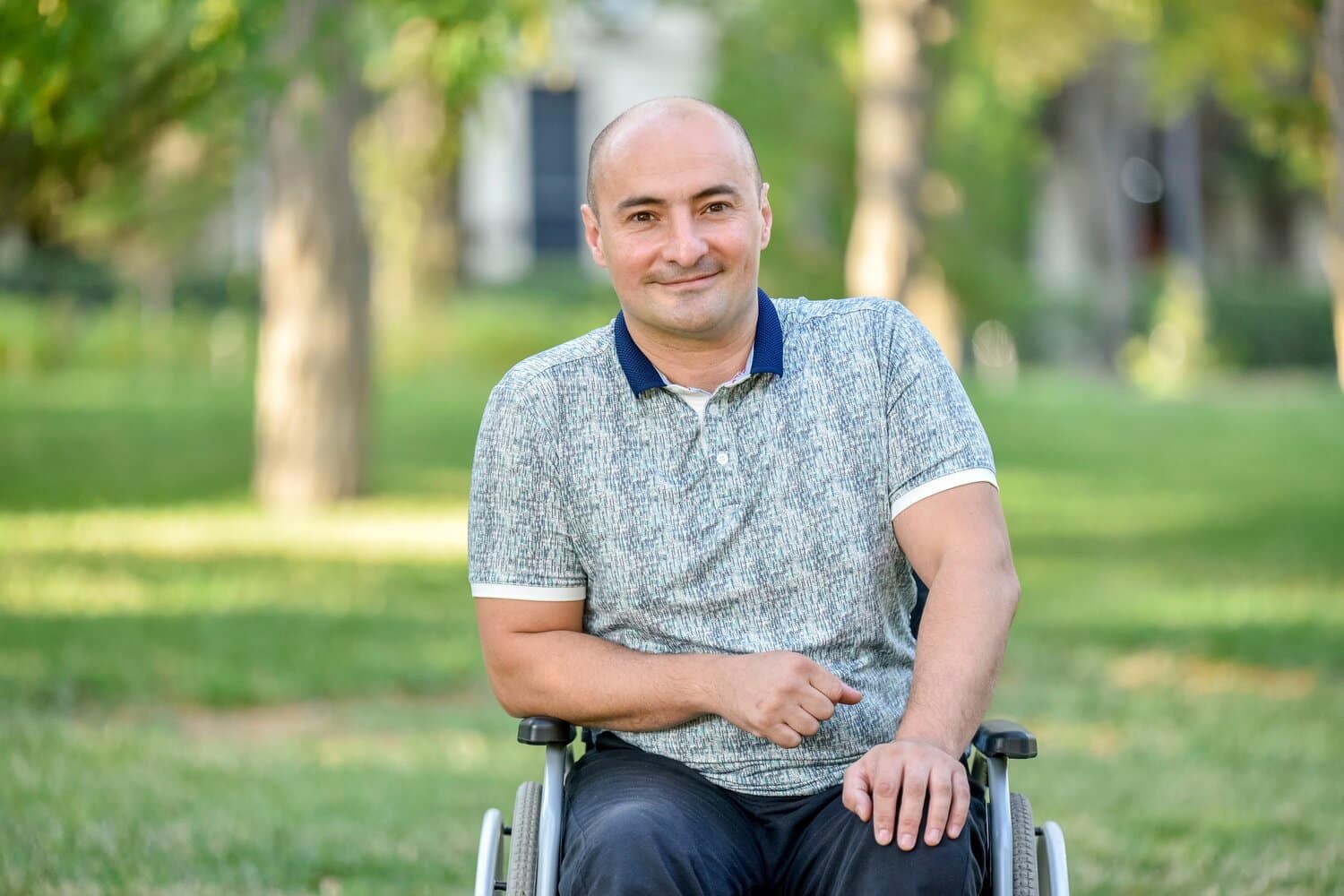
Rare Genetic Diseases, Mental Health Counselling
DisabilityPlus is the first UK counselling service to specialise in a range of counselling for people with genetic disease with registered Therapists who understand the conditions.
Emotional Support: Counselling can be emotionally challenging, especially with the potential risks and implications of the genetic condition. Psychotherapists provide emotional support helping individuals and families cope with the psychological impact of genetic disorders.
So, if you’re struggling in any way right now, please do get in touch with us. Talking to someone outside your family or circle of friends may help you better understand your feelings and manage them more effectively.

Your Service
Our team can help you & your family cope with the emotional and psychological impact of living with a long-term condition.
⇒ Our Counselling comes from Lived Experiences, not a Text Book or Training Course.
⇒ Heavily subsidised self-paying plans with no waiting list.
⇒ Free Funding applications within most regions of the UK.
⇒ We can support people who use assistive communication devices.
⇒ Video & telephone counselling to ensure you can connect with specialists wherever you live.

Your Service
We can help with the majority of unique problems associated with different types of Genetic Disorders Counselling including:
Ehlers-Danlos Syndrome
What is Ehlers-Danlos syndrome?
Ehlers-Danlos syndrome is a group of conditions that affect the connective tissues in the body.
These tissues include cartilage, bone, fat and blood. They support organs and other tissues throughout the body.
Doctors classify Ehlers-Danlos syndrome into 13 types based on their most notable features and the parts of the body where symptoms appear.
People with the most common type have symptoms including very loose joints and fragile skin that tears easily.
Ehlers-Danlos syndrome can be genetic, meaning it is passed down through family members.
An estimated 1 in 5,000-20,000 people have the most common type of Ehlers-Danlos syndrome.
For more information please visit the EDS Support UK website
Amyloidosis
What is AA amyloidosis?
AA amyloidosis is one type of rare disorder amyloidosis (pronounced “am-uh-loy-doh-sis”). Amyloidosis happens when proteins in your body lose their three-dimensional (3D) structure and become twisted clumps of misshapen fibrils (amyloid deposits) that gather on your organs and tissues.
AA amyloidosis is also known as secondary amyloidosis or amyloid serum A protein.
This amyloidosis type happens when you have high levels of inflammation in your body that boost the serum A protein levels in your bloodstream.
You may have high serum A protein levels if you have a long-lasting infection or inflammatory disease.
In a sense, AA amyloidosis is a serious complication of inflammatory diseases and conditions.
Healthcare providers treat AA amyloidosis by controlling the underlying disease or condition.
ALD
How does ALD affect the body?
People with ALD can’t break down high levels of fat molecules — specifically very long-chain fatty acids (VLCFAs). As a result, VLCFAs build up in the brain, nervous system and adrenal cortex, the largest part of the adrenal gland.
Scientists aren’t exactly sure how the VLCFA buildup affects the body. But research suggests the accumulation causes inflammation that damages the myelin sheath. Myelin is the protective layer around nerve cells in the brain.
When myelin is damaged, nerve cells cannot send signals from the brain to the body.
This causes problems with the body’s functions, including how you move and think.
People with ALD have a shortage of some hormones because ALD also damages the adrenal glands.
The adrenal glands sit on top of each kidney. They make hormones that affect male and female sex characteristics and your stress response.
Mitochondrial
Mitochondrial disease, or mitochondrial disorder, refers to a group of disorders that affect the mitochondria, which are tiny compartments that are present in almost every cell of the body.
The mitochondria’s main function is to produce energy.
More mitochondria are needed to make more energy, particularly in high-energy-demand organs such as the heart, muscles, and brain. When the number or function of mitochondria in the cell is disrupted, less energy is produced and organ dysfunction results.
Depending on which cells within the body have disrupted mitochondria, different symptoms may occur.
Mitochondrial disease can cause a vast array of health concerns, including
- fatigue
- weakness
- metabolic
- strokes
- seizures
- cardiomyopathy
- arrhythmias
- developmental
- cognitive disabilities
- diabetes mellitus
- impairment of hearing
- vision
- growth
- liver
- gastrointestinal
- kidney function, and more.
These symptoms can present at any age from infancy up until late adulthood.
Free Funding
♣ Applications 18+
♣ Most Regions in the UK
♣ Discharged as unsuitable
by the local NHS Mental Health
Service in the last two years.
♣ Free Assessment Session

How can we help you?
♣ Coping with the rollercoaster of society’s challenges & perceptions
♣ Exploring your feelings & thoughts
♣ Understanding of how difficulties may have developed
♣ Management of pain and spasms
♣ Coping with different emotions
♣ Concerns about memory and changes in thinking
♣ Dealing with distress and trauma
♣ Concerns about relationships
♣ Adjusting to the reality of living with a disability
♣ Setting realistic aspirations for the future

Mental Health
Individuals and families dealing with rare genetic disorders may face unique challenges that can impact their mental health. Coping with a disorder can be overwhelming, and it is essential to have access to appropriate mental health support.
Your counsellor is knowledgeable about the emotional and psychological impact of genetic disorders. She specialises in working with individuals and families affected by genetic conditions.
Read more
She can help with coping strategies, emotional support, and managing any associated mental health conditions, such as anxiety or depression.
Rare genetic disorders counselling can be immensely beneficial. Connecting with a counsellor who understands your experiences and challenges can provide a sense of community, emotional support, and shared knowledge.
Self-Care and Stress Management: She will support you with self-care activities that promote mental well-being, such as practising mindfulness or relaxation techniques, engaging in hobbies, maintaining a healthy lifestyle, and seeking balance in daily life. Managing stress through self-care can contribute positively to overall mental health.
Remember that seeking mental health support is a personal decision, and finding the right support is a beneficial fit for your needs.
Don’t hesitate to reach out to us if you would like mental health support for your rare genetic disorder.

Moving Towards a Brighter Future
We know that most people we see do not have mental health conditions; they have emotional stressors & issues subjected to accessibility, discrimination, limited opportunities, physical, neurological conditions & relationships in general.
These are key issues many disabled people face on a daily basis.
Emotional support: We can provide emotional support for you and your family. The counsellor can provide a safe and non-judgmental space for you to express your feelings and concerns.
Read more
Coping skills: Counselling can help you develop coping skills to deal with the challenges of living with the condition. Coping skills can include stress management techniques, problem-solving strategies, and self-care practices.
Relationship and communication skills: We can help you develop better communication and relationship skills. This can improve relationships with family members, friends, and caregivers.
Self-esteem and self-confidence: Counselling can help you improve your self-esteem and self-confidence. This can lead to a better sense of self-worth and a more positive outlook on life.
Goal-setting and motivation: Therapy can help you set realistic goals and develop strategies to achieve them. This can provide motivation and a sense of purpose.
Education and information: Counselling can provide you and your family with information and available resources. This can help you make informed decisions about your care and treatment.

Questions?
What to expect? – your counsellor will understand the issues you may be facing; each person is different; however, in Rare Genetic Disorders Counselling, common themes are discussed.
Therapy – we usually offer counselling that supports resolutions of your current issues and future planning. Some people prefer a longer, more profound form of psychotherapy. We support both modes of counselling.
When can I start counselling? – if you pay for sessions, therapy generally starts within a fortnight. If you wanted NHS funding, we would make an application following a free assessment session.
No NHS funding application is guaranteed to be successful, and the timeframe is normally between 8 and 12 weeks.
We pride ourselves on providing safe and compassionate Disability Focused Counselling where all individuals, regardless of cultural, gender or sexual identity, can receive equitable mental health services and support.
So, if you’re struggling in any way right now, don’t hesitate to contact us.
Referrals?
Referrals from the General Public, GPs, Rehabilitation Centres, Mental Health Boards & Professional Organisations for Quality Counselling & Psychotherapies.
Rare Genetic Disorders Counselling is for:
- Individuals
- Couples
- Care-Givers
- Family Members & Friends
- Organisations
- GPS
- NHS Providers
Session fees?
We offer privately-paid services from age 14.
Private pay clients are able to choose the focus, duration, and frequency of therapy.
You are even allowed to choose the length of sessions.
You can start your Counselling almost immediately.
There are no waiting lists or reports being sent to GPs. It’s Confidential.
You can start by paying privately for the immediate start & in the background, we can submit an NHS application for you.
Pricing
For the general public, we heavily discounted our session fees. This enables you to access counselling easily at an affordable price.
Session Fees for 50 minutes:
Initial Session £50
Pay as you go £70
Saver3 £180 (3 Sessions)
For those who use assistive communication devices, session times move from 50 to 70 minutes with a session fee of £90 & saver pack of 3 sessions at £220
Some people may find that self-paid is just out of reach. If this is the case, let us know, and we can generally help with a payment plan.
Free funding options?
Usually, your GP will refer you to the local IAPT mental health service if you ask for support; this would normally be because they are unaware of DisabilityPlus.
We can apply for specialist counselling if you have one or more of the following:
⇒ You have been discharged from the local NHS service as unsuitable for their counselling.
⇒ You have been recommended to see a Specialist Rare Genetic Disorders Counselling Service.
⇒ You have one or more issues around grief or addictions.
⇒ You use a communication device.
⇒ There are some other exceptional circumstances you can tell us about.
⇒ The severity and additional issues of can be classed as exceptional circumstances.
Talk to us to see if you qualify for a free funding application or self-refer to start the funding process.
If applying for free funding, the first session is free.
This session is an assessment; it’s the foundation to enable us to make the application with a first-class treatment plan specific to you or the client.
Free funding applications are based on your complex needs & exceptional circumstances.
Free funding cannot be guaranteed, and every case is based on its own merits and the region of the UK you live in.

Mobile
01932881849
Referral Forms
Self-Pay
Carers
Referrals
Organisations
Find the Right Support for Your Journey
Select your counselling service
Rare Genetic Diseases, Mental Health Counselling
Enhancing Mental Health Support
DisabilityPlus is a unique mental health service focusing on the challenges faced by those living with rare genetic disorders and their caregivers. We provide specialist support that goes beyond traditional mental health outcomes, addressing the specific needs of our clients. We match clients with counsellors based on cultural understanding and shared experiences, ensuring effective and personalised support. This approach fosters trust and a deeper connection between clients and therapists.

Rare Genetic Disorders
As an example we often support people with:
⇒ Ehlers-Danlos Syndrome (EDS)
⇒ Mitochondrial Diseases
⇒ Cystic Fibrosis
⇒ Sickle Cell Disease
⇒ Haemophilia
⇒ Huntington’s Disease
⇒ Marfan Syndrome
⇒ Phenylketonuria (PKU)
⇒ Neurofibromatosis
⇒ Rett Syndrome
⇒ Wilson’s Disease
⇒ Pompe Disease
⇒ Gaucher Disease
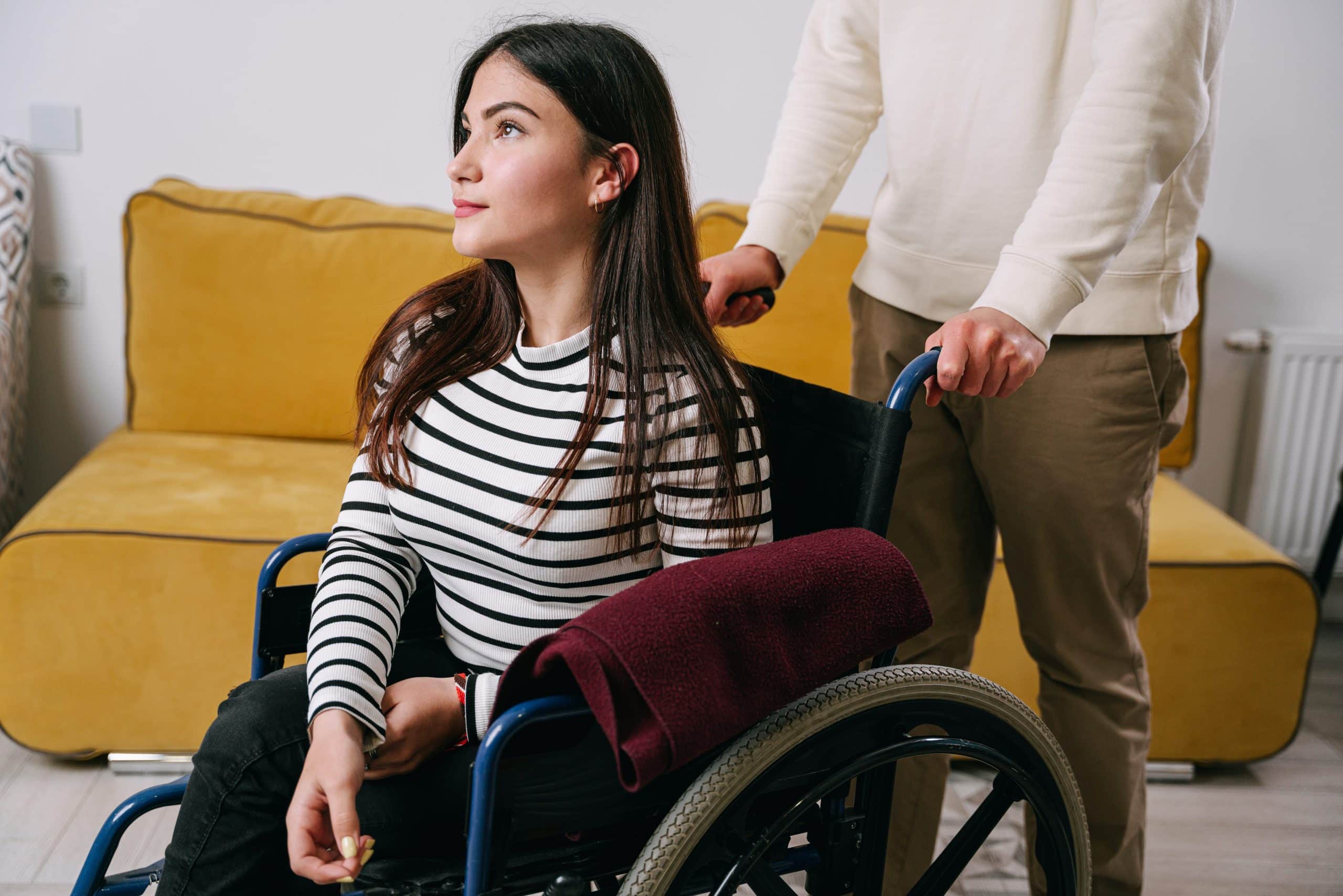
Personalised Approach to Care
Understanding that the journey through a rare genetic disease is profoundly influenced by one’s cultural background and personal experiences, we prioritise the alignment of our clients with counsellors who resonate with their individual stories.
This personalised matching process is fundamental to creating a trusted bond between client and therapist, ensuring our counselling environment is as effective as it is empathetic.

Common Challenges We Support you with
⇒ Chronic Pain
⇒ Abelism/ Discrimination
⇒ Insomnia
⇒ Eating Issues
⇒ Worries about the future
⇒ Financial Strain
⇒ Employment Issues
⇒ Communication
⇒ Carer Problems
⇒ Physical Challenges
⇒ Memory Retention
⇒ Social Isolation
⇒ Healthcare Challenges
⇒ Access to Services

Mental Health Issues We Work with Daily
⇒ Depression
⇒ Generalised Anxiety
⇒ Social Anxiety
⇒ Post Traumatic Stress
⇒ Low Self-esteem
⇒ Emotional Regulation
⇒ Anger
⇒ Psychosis
⇒ Stress
⇒ Grief and Loss
⇒ OCD
⇒ ADHD
⇒ Self-Harm
⇒ Suicidal Thoughts

Free Funding: Rare Genetic Disorders Counselling
In many parts of England and Wales, we can apply for specialist rare genetic disorder counselling for individuals with limited daily functionality who require a carer. Applications can be made if clients are over 18 and live in England or Wales and you have been discharged by the local NHS mental health service within the last two years.
Criteria
The free funding criteria is based on the below situations:
♣ In care or has a carer.
♣ Discharged from the local mental health service as deemed unsuitable.
For individuals with a good level of physical ability without the need for a carer, it is necessary to seek support through local mental health services referred by their GP.
Often, however, local mental health services conclude that such clients do not fit their criteria and discharge them.
If clients have been discharged as unsuitable by the local service, we can make a free funding application for specialist support for people who do not need a carer.
Application Process
Upon showing interest in our counselling services, clients are promptly scheduled for an assessment session within seven days.
This initial meeting is crucial, as it allows us to grasp each client’s unique challenges and needs, fostering an environment of empathy and understanding and a step towards therapeutic progress.
Post-assessment, our dedicated team is responsible for applying for free funding on the client’s behalf.
This process is managed meticulously to ensure a seamless and stress-free experience for our clients and free them from additional administrative burdens.
Counselling sessions are typically scheduled to begin within 12 weeks of assessment and approval (this can vary region by region). We aim to provide a supportive, empathetic, and practical counselling experience through this funding and our services. We are committed to assisting individuals with cerebral palsy navigate their journey towards emotional healing, resilience, and empowerment.
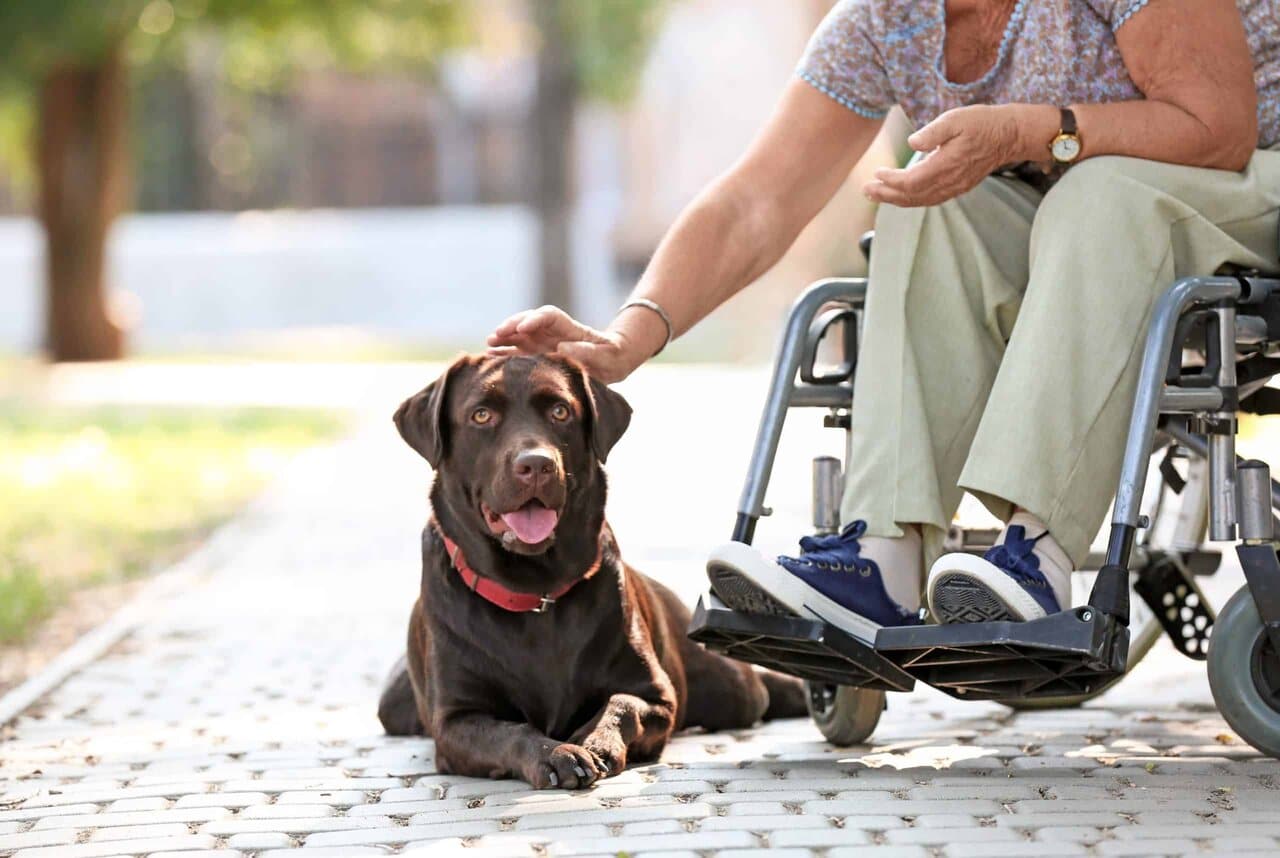
Self-Paying: Accessible and Prompt Rare Genetic Disorder Counselling
Opting for self-pay means you can commence your counselling journey typically within a week, offering immediate support when you need it most. Furthermore, for those awaiting free funding approval, self-pay provides an opportunity to start counselling without delay, ensuring continuity of care and support.
Read more
In line with our mission to deliver exceptional rare genetic disease counselling, we are acutely aware of the importance of affordability.
Self-paid clients within the UK can take advantage of specialist counselling.
To make our services more accessible, we have substantially subsidised our self-paid plans. This approach reflects our deep commitment to making rare genetic disease counselling available to a broader audience, irrespective of financial circumstances.
Our subsidised rates are designed with your needs in mind: an introductory session for £50, followed by a package of three sessions for £180. These rates are set to reduce financial pressure for our clients.
We firmly believe that financial constraints should not hinder accessing the vital support and guidance necessary for managing cerebral palsy. We aim to enable more individuals to benefit from our professional, empathetic, and specialist counselling services.
Through this self-pay option, we strive to make a meaningful and positive impact on the lives of those with a rare genetic disease by offering them the support they need at an affordable and accessible price.
Free Funding
Applications 18+
Most Regions in England
and Wales
Discharged as unsuitable by
the NHS local mental health service
within the last two years
Free Assessment Session
Contact us if you want more
information, or if you want to
self-refer, click below.
Other Referrals
♣ Professional Organisations
♣ Mental Health Providers
♣ IAPT
♣ Friends & Family
♣ Carers
♣ GP’s
How can we help you?
♣ Coping with the rollercoaster of society’s challenges & perceptions
♣ Exploring your feelings & thoughts
♣ Understanding of how difficulties may have developed
♣ Management of pain and spasms
♣ Coping with different emotions
♣ Concerns about memory and changes in thinking
♣ Dealing with distress and trauma
♣ Concerns about relationships
♣ Adjusting to the reality of living with a rare condition
♣ Setting realistic aspirations for the future

Easy Access
Contact us if you would like to ask some questions
Make a Referral
Self-paid, free funding applications & organisations
Contact
You will be contacted within 24 hours to arrange your counselling
Moving towards a brighter future
We know that most people we see do not have mental health conditions; they have emotional stressors & issues subjected to accessibility, discrimination, limited opportunities, physical, and neurological conditions & relationships in general.
These are key issues many disabled people face on a daily basis.
Emotional support: We can provide emotional support for you and your family. The counsellor can provide a safe and non-judgmental space for you to express your feelings and concerns.
Coping skills: Counselling can help you develop coping skills to deal with the challenges of living with the condition. Coping skills can include stress management techniques, problem-solving strategies, and self-care practices.
Relationship and communication skills: We can help you develop better communication and relationship skills. This can improve relationships with family members, friends, and caregivers.
Self-esteem and self-confidence: Counselling can help you improve your self-esteem and self-confidence. This can lead to a better sense of self-worth and a more positive outlook on life.
Goal-setting and motivation: Therapy can help you set realistic goals and develop strategies to achieve them. This can provide motivation and a sense of purpose.


Find the Right Support for Your Journey
At DisabilityPlus, we understand that every individual’s mental health journey is unique. That’s why we offer comprehensive counselling services designed to cater to your specific needs.
Click & Select your counselling service
Rare Genetic Diseases, Mental Health Counselling
DisabilityPlus is the first UK counselling service to specialise in a range of counselling for people with genetic disorders with registered Therapists who understand the conditions.
Emotional Support: Counselling can be emotionally challenging, especially with the potential risks and implications of the genetic condition. Psychotherapists provide emotional support helping individuals and families cope with the psychological impact of genetic disorders.
So, if you’re struggling in any way right now, please do get in touch with us. Talking to someone outside your family or circle of friends may help you better understand your feelings and manage them more effectively.
Ehlers-Danlos syndrome
What is Ehlers-Danlos syndrome?
Ehlers-Danlos syndrome is a group of conditions that affect the connective tissues in the body.
These tissues include cartilage, bone, fat and blood. They support organs and other tissues throughout the body.
Doctors classify Ehlers-Danlos syndrome into 13 types based on their most notable features and the parts of the body where symptoms appear.
People with the most common type have symptoms including very loose joints and fragile skin that tears easily.
Ehlers-Danlos syndrome can be genetic, meaning it is passed down through family members.
An estimated 1 in 5,000-20,000 people have the most common type of Ehlers-Danlos syndrome.
For more information please visit the EDS Support UK website
Amyloidosis
What is AA amyloidosis?
AA amyloidosis is one type of rare disorder amyloidosis (pronounced “am-uh-loy-doh-sis”). Amyloidosis happens when proteins in your body lose their three-dimensional (3D) structure and become twisted clumps of misshapen fibrils (amyloid deposits) that gather on your organs and tissues.
AA amyloidosis is also known as secondary amyloidosis or amyloid serum A protein.
This amyloidosis type happens when you have high levels of inflammation in your body that boost the serum A protein levels in your bloodstream.
You may have high serum A protein levels if you have a long-lasting infection or inflammatory disease.
In a sense, AA amyloidosis is a serious complication of inflammatory diseases and conditions.
Healthcare providers treat AA amyloidosis by controlling the underlying disease or condition.
Adrenoleukodystrophy
How does ALD affect the body?
People with ALD can’t break down high levels of fat molecules — specifically very long-chain fatty acids (VLCFAs). As a result, VLCFAs build up in the brain, nervous system and adrenal cortex, the largest part of the adrenal gland.
Scientists aren’t exactly sure how the VLCFA buildup affects the body. But research suggests the accumulation causes inflammation that damages the myelin sheath. Myelin is the protective layer around nerve cells in the brain.
When myelin is damaged, nerve cells cannot send signals from the brain to the body.
This causes problems with the body’s functions, including how you move and think.
People with ALD have shortage of some hormones because ALD also damages the adrenal glands.
The adrenal glands sit on top of each kidney. They make hormones that affect male and female sex characteristics and your stress response.
Mitochondrial diseases
Mitochondrial disease, or mitochondrial disorder, refers to a group of disorders that affect the mitochondria, which are tiny compartments that are present in almost every cell of the body.
The mitochondria’s main function is to produce energy.
More mitochondria are needed to make more energy, particularly in high-energy-demand organs such as the heart, muscles, and brain. When the number or function of mitochondria in the cell is disrupted, less energy is produced and organ dysfunction results.
Depending on which cells within the body have disrupted mitochondria, different symptoms may occur.
Mitochondrial disease can cause a vast array of health concerns, including
- fatigue
- weakness
- metabolic
- strokes
- seizures
- cardiomyopathy
- arrhythmias
- developmental
- cognitive disabilities
- diabetes mellitus
- impairment of hearing
- vision
- growth
- liver
- gastrointestinal
- kidney function, and more.
These symptoms can present at any age from infancy up until late adulthood.
Free Funding
♣ Applications 18+
♣ Most Regions in the UK
♣ Communication Devices
♣ Free Assessment Session
Improved living standards
Living with a disability or injury can have a significant emotional impact on you. Here are some benefits of being supported by a specialist cerebral palsy counselling service.
Support
Emotional support: A disability can be a difficult and challenging condition to live with, and counselling can provide a safe and supportive space for individuals to process their emotions and feelings related to their diagnosis.
Empathy: Counselors provide empathy and validation to create a supportive and understanding environment. They aim to make you feel heard and understood.
Improvements
Improved quality of life: By addressing the emotional and practical challenges of living with a rare genetic disorder, counselling can help improve your overall quality of life and well-being.
Coping
Coping strategies: Our counsellors are trained to help you develop coping strategies for managing your physical and emotional symptoms.
Relational
Better communication: Counselling can help you improve your communication skills and relationships with friends, family, and healthcare providers.
Adjustments
Problem-solving: The therapists can help you identify and address specific challenges related to your issues and work with you to find solutions.
Resilience
Increased resilience: By helping you develop a positive outlook and coping strategies, counselling can increase resilience and help you better manage the ups and downs of living with cerebral palsy.
How we support you
♣ Coping with the rollercoaster of society’s challenges & perceptions
♣ Exploring your feelings & thoughts
♣ Understanding of how difficulties may have developed
♣ Management of pain and spasms
♣ Coping with different emotions
♣ Concerns about memory and changes in thinking
♣ Dealing with distress and trauma
♣ Concerns about relationships
♣ Adjusting to the reality of living with a disability
♣ Setting realistic aspirations for the future
Easy Access
Contact us if you would like to ask some questions
Make a Referral
Self-refer to start your journey into a happier life.
Mental Health Support
We know that most people we see do not have mental health conditions; they have emotional stressors & issues subjected to accessibility, discrimination, limited opportunities, physical, neurological conditions & relationships in general.
Depression
Depression: Living with a rare genetic disorder can be challenging and may lead to feelings of sadness, hopelessness, and loss of interest in activities.
OCD
Obsessive-compulsive disorder (OCD): Some people may develop OCD, which involves obsessive thoughts and compulsive behaviours that are difficult to control.
Anxiety
Anxiety is a common mental health condition that affects people with a rare genetic disorder. You may worry about your future and your ability to manage your relationships.
Symptoms of anxiety include:
- Restlessness/ excessive worry or fear
- Irritability
- Sleep deprivation
- Panic attacks (heart pounding, difficulty breathing, sweating, stomach in knots)
ADHD
Attention-deficit/hyperactivity disorder (ADHD): ADHD is a common co-occurring condition, which can make it difficult to concentrate, complete tasks, and stay organised.
PTSD
People with cerebral palsy may experience PTSD related to their condition or medical treatments.
Symptoms of PTSD include:
- Negativity
- Self-destructive behaviour
- Emotional numbness
- Flashbacks/ dreams of the traumatic event
- Hypervigilance
- Difficulties sleeping
- Avoidance
Self-Esteem
Counselling can help you improve your self-esteem and self-confidence. This can lead to a better sense of self-worth and a more positive outlook on life.
Counselling facilitates self-exploration, helping you gain insight into your thoughts, emotions, and behavioural patterns. This increased self-awareness allows you to make more informed choices, break negative cycles, and work towards personal growth and positive change.
We can help you build self-esteem and self-confidence. By working on self-acceptance, addressing negative self-talk, and exploring personal strengths and achievements, you can develop a more positive self-image and a greater sense of self-worth.
If you are struggling, please do get in touch with our friendly team, who support people with cerebral palsy every day of the week.
Questions you may wish to ask
How?
What to expect? – your counsellor will understand the issues you may be facing; each person is different; however, in Genetic Disorders Counselling, common themes are discussed.
Therapy – we usually offer counselling that supports resolutions of your current issues and future planning. Some people prefer a longer, more profound form of psychotherapy. We support both modes of counselling.
When can I start counselling? – if you pay for sessions, therapy generally starts within a fortnight. If you wanted NHS funding, we would make an application following a free assessment session.
No NHS funding application is guaranteed to be successful, and the timeframe is normally between 8 and 12 weeks.
We pride ourselves on providing safe and compassionate Disability Focused Counselling where all individuals, regardless of cultural, gender or sexual identity, can receive equitable mental health services and support.
So, if you’re struggling in any way right now, don’t hesitate to contact us.
Self-paying
Private pay clients are able to choose the focus, duration, and frequency of therapy.
Clients are even allowed to choose the length of sessions. Research shows that clients who have to pay something for their treatment have more positive outcomes than those who receive free treatment.
Individuals can start their Counselling almost immediately.
No waiting lists or reports are being sent to GPs. It’s Confidential.
Pricing
For the general public, we heavily discounted our session fees. This enables them to access counselling easily at an affordable price.
Session Fees for 50 minutes:
♣ Initial Session £50
♣ Pay as you go £70
♣ Saver3 £180 (3 Sessions)
For those who use assistive communication devices, session times move from 50 to 70 minutes with a session fee of £90 & saver pack of 3 sessions at £220
Some people may find that self-paid is just out of reach. If this is the case, let us know, and we can generally help with a payment plan.
Free funding
Usually, your GP will refer you to the local IAPT mental health service if you ask for support; this would normally be because they are unaware of DisabilityPlus.
We can apply for specialist counselling if you have one or more of the following:
⇒ You have been discharged from the local NHS service as unsuitable for their counselling.
⇒ You have been recommended to see a Specialist Rare Genetic Disorders Counselling Service by a Professional.
⇒ You have one or more issues around grief or addictions.
⇒ You use a communication device.
⇒ You are affected by one or more conditions, including Swallowing, Speech, Vision, Hearing, Learning Difficulties or Quadriplegia.
⇒ There are some other exceptional circumstances you can tell us about.
⇒ The severity and additional issues can be classed as exceptional circumstances.
Talk to us to see if you qualify for a free funding application or self-refer to start the funding process.
If applying for free funding, the first session is free.
This session is an assessment; it’s the foundation to enable us to make the application with a first-class treatment plan specific to you or the client.
Free funding applications are based on your complex needs & exceptional circumstances.
Free funding cannot be guaranteed, and every case is based on its own merits.

Our Specialist Services
Click to Select
